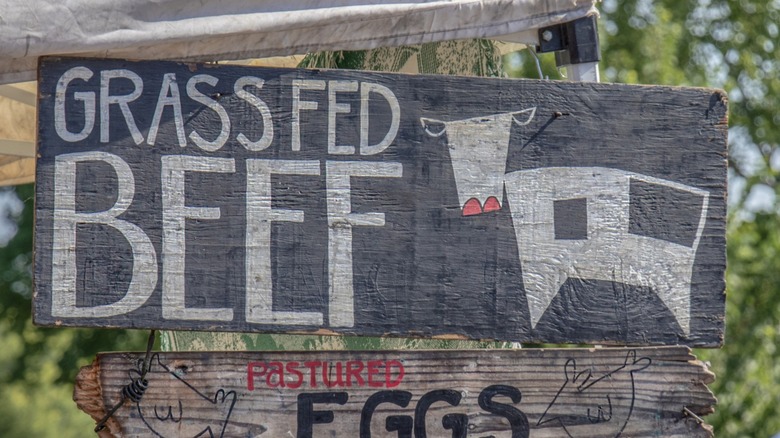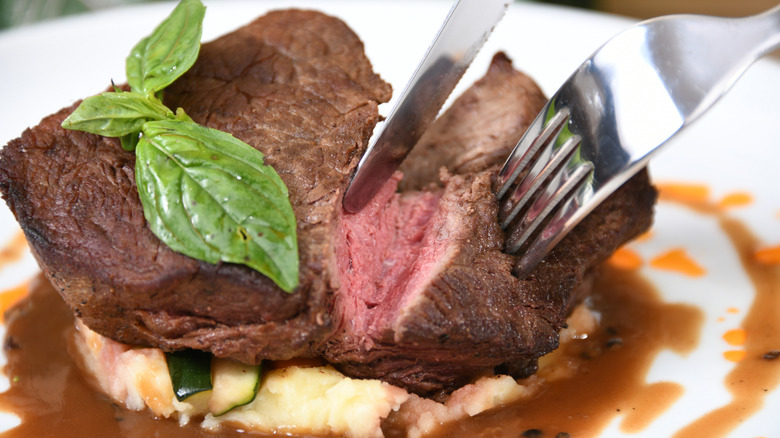Is Grass Better Than Grain-Finished Beef? It's Complicated
You'll often see restaurants (fast food burger chains included) boasting grass-fed beef. Food bloggers, too, try to convince people their beef recipes 'deserve' to be made with this pricier option. All this begs the question: Is grass-fed beef really superior to beef fed on grain? K.C. Gulbro, who owns the Illinois restaurant FoxFire Steakhouse, told The Takeout this isn't necessarily so. In fact, in his experience, it isn't even the fancier of the two options. "My dad was a poor dairy farmer," Gulbro told The Takeout. "So poor they only had one milk cow. Grass-fed beef to him was a poor man's dinner as he had to eat it many times growing up."
Gulbro went on to explain, "All cattle start out on grass. The difference is whether they're grain-finished or grass-finished." Cows that stick to a grass-only diet need more time to attain the proper weight. And while it's true there's a distinct taste difference between grass-finished and grain-finished beef, that difference isn't always in favor of the former.
"The fat can pick up beta-carotene from the grass, giving it a grassy taste, and the higher levels of myoglobin in older cattle can sometimes create a stronger, almost iron-like flavor," said Gulbro. He's not totally against the idea, though. "Modern grass-fed beef can be high-quality, flavorful, and a great option alongside grain-finished."
Is grass-fed beef just an empty buzzword?
So, if grass-fed beef doesn't really taste any better than grain-fed and it costs more, why are people still buying it? For one thing, there's the perception it's healthier; and to some extent, this may be true. It has less marbling (which means less tasty fat), but it does come with slightly fewer calories and a skosh more protein. It also boasts antioxidants and heart-healthy omega-3 fatty acids. Even so, there haven't been any studies proving significant health benefits to be derived from choosing grass-fed over grain-fed beef.
The perception that grass-fed beef is more environmentally friendly is yet another steak myth that turns out not to be true. Since grass-fed cattle take longer to reach the market, they have more time to release atmosphere-destroying methane. If animal welfare is your primary concern, Gulbro didn't feel grass-fed cattle are necessarily any happier. As he pointed out, "Feedyards ... are designed to keep animals comfortable with constant access to food, water, and protection from the elements." He's not exactly dissing grass-fed beef. It's just that both grass- and grain-fed beef are equally good options so long as the cattle are raised the right way. "At the end of the day, good stockmanship and management practices matter more than the finishing diet."

